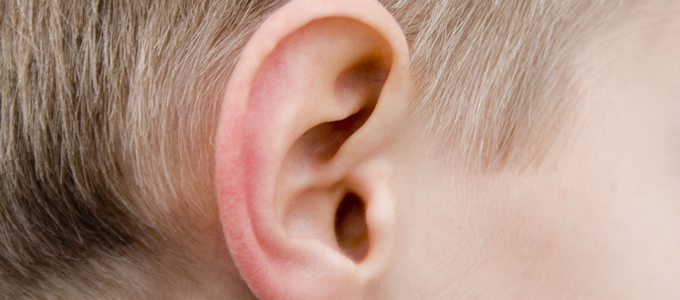
Hearing Problems in Children
Some children will outgrow minor hearing problems like recurring infections before they enter school. Even so, hearing problems in children should be evaluated to determine the source and extent of the issue. It's also important to look for early signs of hearing loss since hearing difficulties may have an impact on development.
Chronic Ear Infections
Persistent ear infections, referred to as chronic otitis media, are based in the middle ear (space behind the ear drum) and accompanied by inflammation or infection. Such infections are usually related to a blockage in the eustachian tube, which can lead to pressure changes and fluid buildup. The infection may cause permanent damage to the affected ear if not detected and treated. Symptoms that may include some degree of hearing loss, drainage from the ear, or a feeling of pressure in the ear are usually mild. Small tubes may be placed in the ear to help minimize infections.
Hearing Loss
Allergies, acid reflux, and recurrent infections are among the common childhood conditions that may contribute to hearing loss in younger patients. Perforation of the eardrum may also occur as a result of an accident or infections. Treatment may involve medication, hearing aids, or surgery, depending on the source of the hearing problem and how it is affecting hearing. Two out of every 1000 children born are affected by some degree of hearing loss, which falls into two broad categories: congenital hearing loss and acquired hearing loss.
Congenital Hearing Loss
This type of hearing loss is present at birth or becomes noticeable very early in life. Babies who required neonatal intensive care or had a low birth weight are statistically more likely to have some type of hearing problem. Congenital hearing loss is most commonly genetic, but may also be related to infections that developed during pregnancy or conditions such as fluid behind the ear drum or other conditions such as cleft palate.
Acquired Hearing Loss
Untreated middle-ear infections, chronic fluid in the ear, hole in the ear drum, sports or other injuries, and trauma are some of the other causes of hearing loss that's acquired later in a child's life. Prolonged exposure to loud music or loud sounds, such as fireworks, can also cause issues with hearing in children
It can be difficult for some younger children to verbalize the extent of their hearing problems. A hearing specialist familiar with hearing problems common in children will know how to interact with younger patients and perform necessary evaluations. There are many innovative treatment options and solutions available that often help diagnose, manage, or treat hearing problems.

